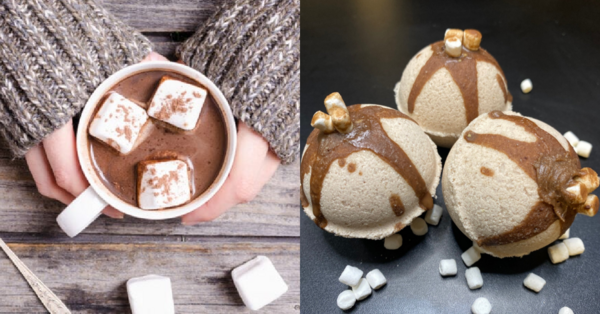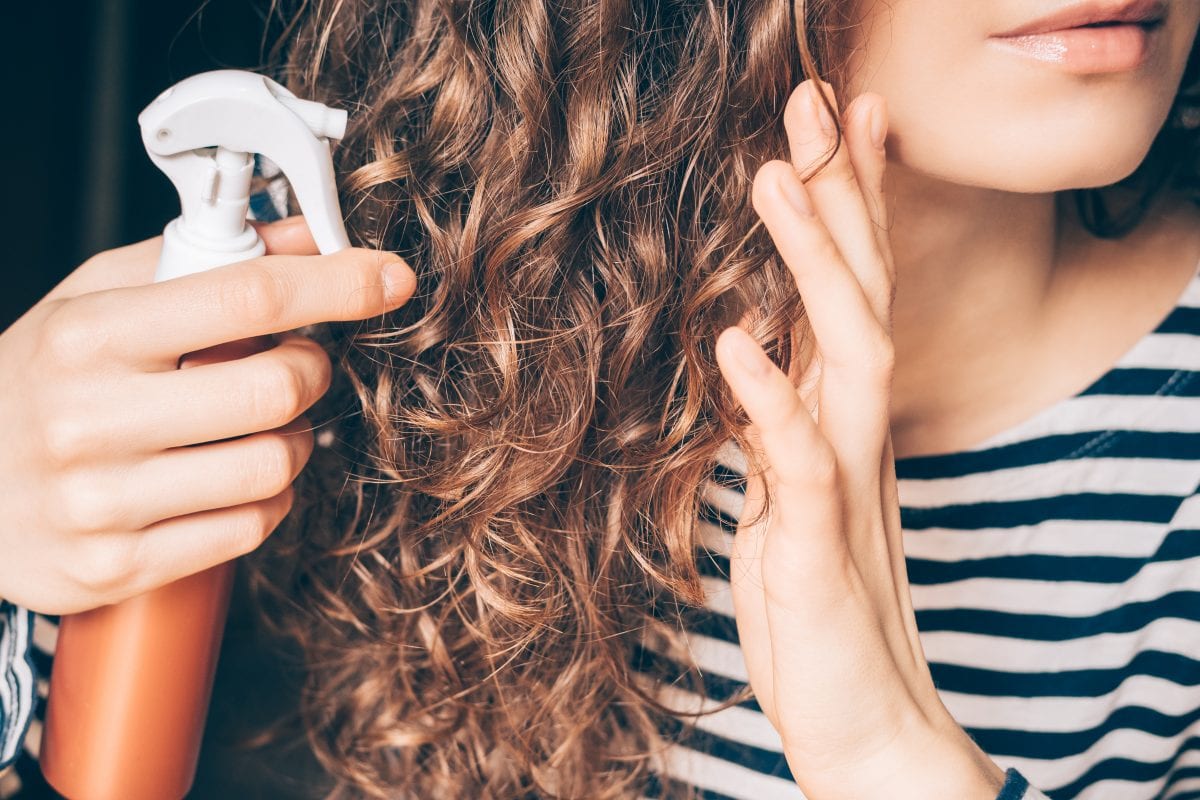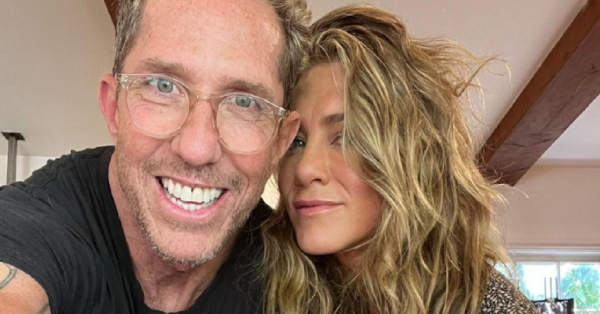Best Essential Oils For Black Hair Growth
What if I told you that the only thing stopping you from getting your ideal fro or that stylish twist out is not a secret? As a black woman, I had long felt that my dream of thick, healthy hair would never come true because I lacked the ‘good hair’ gene.

However, I can assure you that it is not the case. All about the genes; yeah, they play a role, but any type of black hair can grow to waist length. All you have to do is figure out what works best for your hair type.
Afro-textured hair comes in a wide range of textures.
The hair’s curl pattern determines the hair type, with looser curls referred to as 4A and much tighter curls prone to shrinkage referred to as 4C, a category under which most people fall.

Anyone who has tried to grow out and maintain natural hair understands how tough it is. This is because many people do not take the time to understand and grasp how black hair works.
Many companies develop products that promise miraculous growth in a short period. While the commercials featuring a beautiful girl with waist-length, healthy hair may be appealing, many people end up losing money and being disappointed. In some cases, these products actually damage your hair and halt its growth.
How can you get black hair to grow naturally?
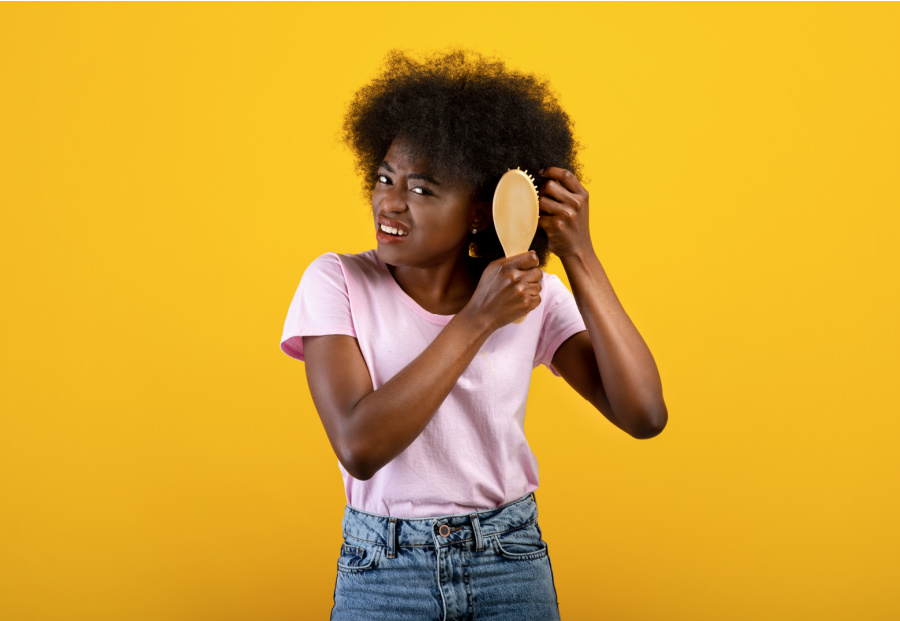
Natural hair growth demands patience and commitment; on average, hair grows half an inch every month, totaling 6 inches in a year, and this is true for all hair types.
Essential oils are high in nutrients such as vitamins and are only taken from plants, whether from the leaves, fruits, or roots. Because essential oils are produced organically, they provide a wide range of advantages and relatively few risks.
These great oils have been utilized for generations in various uses, including food preparation, skin care, and hair care. However, as time passes and industrial products for hair and skin become more prevalent, more people are becoming unaware of the numerous benefits essential oils may provide compared to other products.

So, what are some of the top essential and carrier oils for faster hair growth that are also easily accessible?
Avocado oil.
Is your scalp itchy and flaky because of dandruff in your hair? Simply rub in some avocado oil, and everything will vanish as if by magic. This is common knowledge.
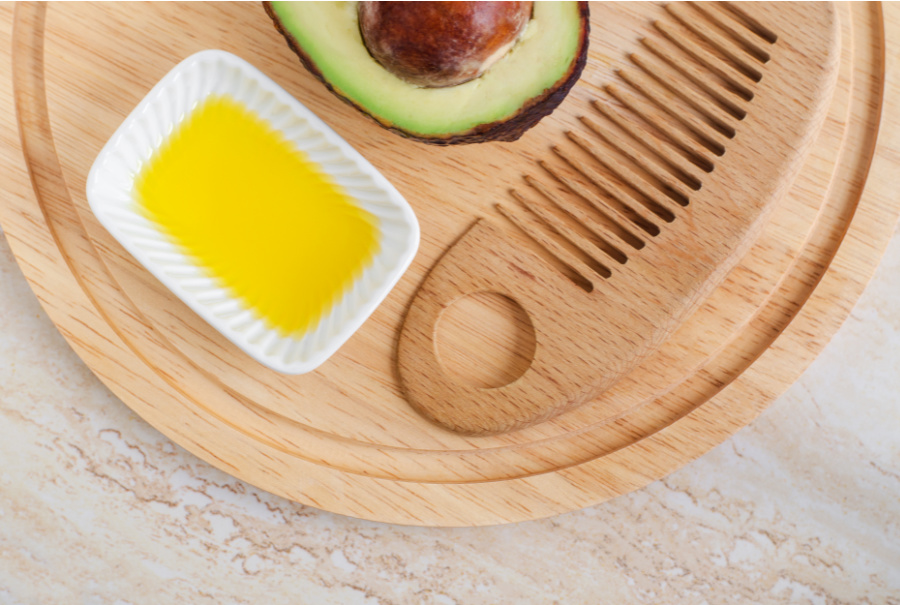
Avocado oil is obtained from the highly nutritious avocado fruit, mainly the flesh, containing 30% OIL. The avocado fruit is high in vitamins A, B, C, and D. Because of their soluble nature, vitamins b and c are lost during the extraction process. In contrast, vitamins a, d, and e and potassium and lecithin are retained.
Avocado oil is not only excellent in the kitchen, but it’s also a great hit in the field of cosmetics. It is nourishing to the body and skin, as well as having significant hair growth advantages. Avocado oil, as previously noted, is highly beneficial to the health of your scalp. Because it is lighter than other oils, it can penetrate deep inside the hair shaft to the follicles where hair growth begins, allowing your hair strands to absorb all nutrients with ease, assisting your hair in becoming strong and resistant to breakage or heat.
Coconut oil
Coconut oil is referred to as super oil, and with good reason. Coconut is one of the best and affordable carrier oil. It is highly enriched in fatty acids, making it incredibly beneficial to the body whether consumed or applied to the skin or hair. That’s true. Coconut oil has a slew of advantages when it comes to growing healthy hair.

Coconut oil is excellent for all hair types, but it is especially beneficial to curly and afro hair? But, before you incorporate it into your hair routine, make sure you understand how it contributes to hair growth.
For starters, coconut oil is an excellent moisturizer. You can determine if your hair is healthy merely by looking at it. Dry hair seems dull and is brittle, breaking easily. Hair growth is slowed as a result of this. Healthy hair is hydrated and has a shine, which is exactly what coconut oil provides. Coconut oil consists of fatty acids and vitamins that nourish the scalp while eliminating any sebum accumulation inhibiting hair growth.Also, the long straight structure offered by the lauric acid present in coconut oil makes it light and easily absorbed into the hair shaft.
Coconut oil can be individually or in combination with other oils such as black castor oil. It is usually available in two forms: liquid and solid. If it’s still solid, spoon some into a bowl and warm it up. Starting at the scalp, apply the oil to your hair, working your way up to the strands. For additional moisture and gloss, use coconut oil to slightly damp hair.
Jamaican black castor oil
One of the top oils for afro hair is Jamaican black castor oil and is well worth the hype, which is why more companies are incorporating it into their hair products.
Jamaican castor oil is scientifically proven to stimulate hair growth at a faster rate because castor seeds are burned before the oil is extracted, leaving a high ash content that is beneficial for your hair.

Jamaican black castor oil is good for scalp massages.
Apply a few drops of Jamaican black castor oil to your scalp and massage gently from the roots up to ensure that all of the beneficial nutrients reach the hair follicles as intended and give your hair strands a boost to prevent breakage.
Olive oil
Moisturizes hair heals dry scalp, decreases hair breakage, and prevents hair loss. What problem that a few drops of olive oils can’t solve?

When it comes to the hair benefits of olive oil, the possibilities are unlimited.
Olive oil is not just hydrating, but it also contains many antioxidants that encourage hair growth.
Olive oil also acts as an inhibitor of dihydrotestosterone, a hormone that targets and destroys hair follicles, resulting in hair loss.
Lavender essential oil
Lavender oil (I buy my lavender essential oil here) is a must-try oil made from the gorgeous purple lavender plant.
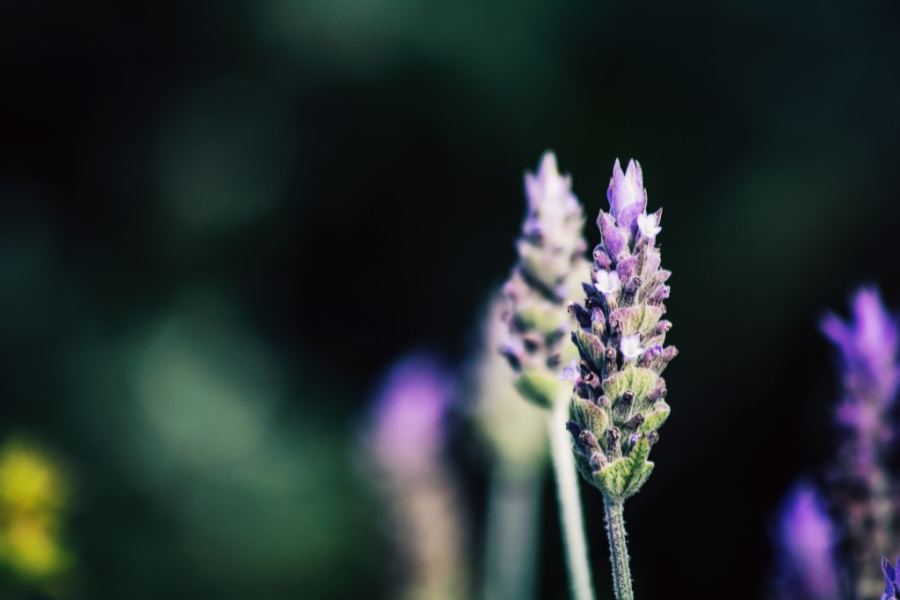
It is not just because it has a lovely scent. It has been discovered to encourage hair growth in individuals who suffer from hair loss or alopecia.
Lavender oil has anti-inflammatory and antibacterial properties that can help you battle fungal infections and enhance your scalp’s overall health.
It’s also great for massages since it soothes your scalp and improves blood circulation, which is crucial for hair growth.
Lavender oil can be used independently or mixed with other oil like olive oil and jojoba oil for maximum effects.
Jojoba oil
Jojoba oil is beneficial to your hair for a variety of reasons.
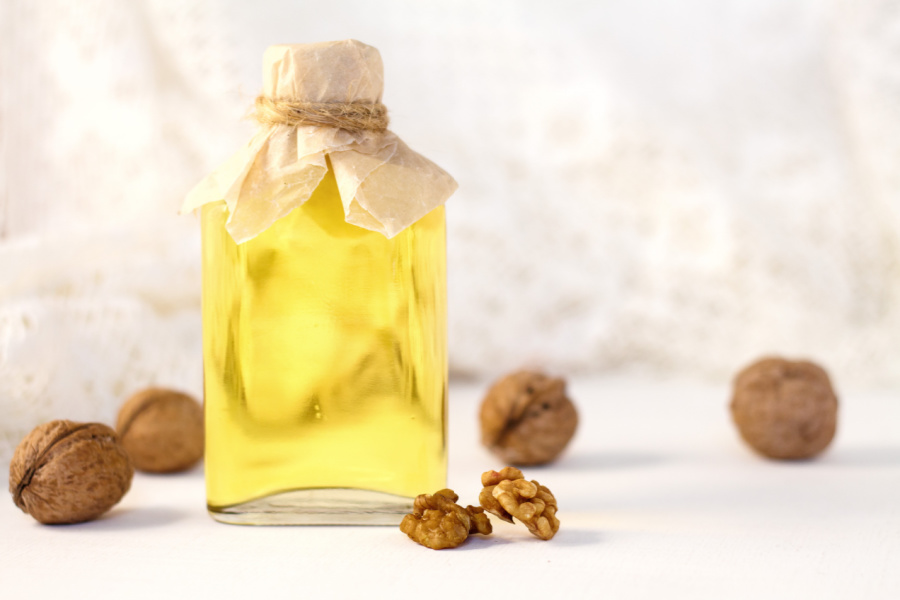
Jojoba oil is oily, so it will act as a moisturizer for your hair and help lock in moisture for your afro for a long time. It also contains essential vitamins like vitamin c, b, and e, which will nourish a dry scalp, as well as high levels of zinc and copper, which will help strengthen your hair strands, add thickness, and prevent hair loss.
Rosemary oil
Many households have rosemary oil on hand. (Or you can buy rosemary oil here.)
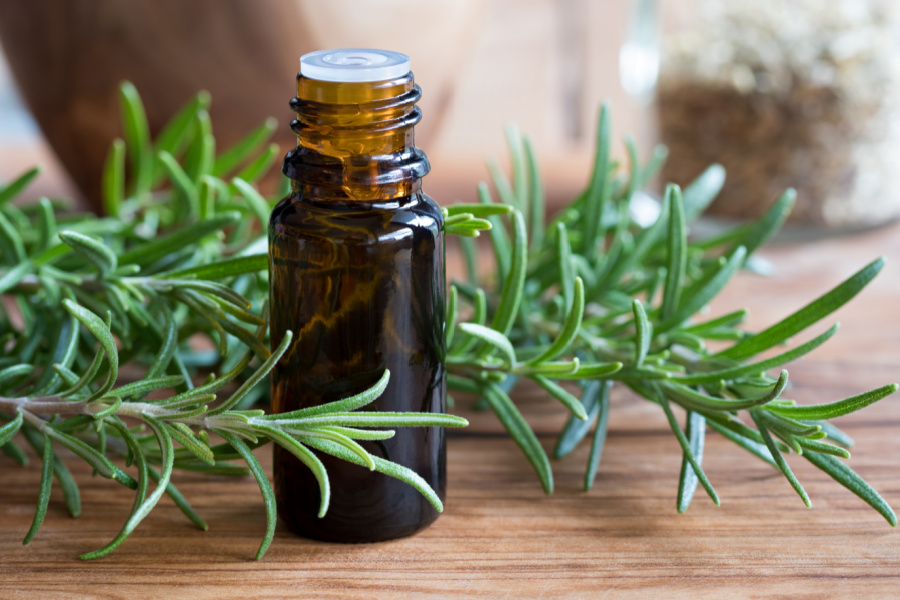
Rosemary oil has been used for therapeutic purposes for generations. It is said to help with pain relief and memory enhancement.
However, rosemary oil’s benefits do not end there; it has garnered popularity for its hair benefits in recent years, with evidence pointing to the use of this wonderful oil by Mediterranean cultures to treat their hair and prevent hair loss.
Studies show that rosemary oil is an antioxidant and anti-inflammatory agent that aids blood flow, nerve growth, and hair follicle growth.
Applying rosemary oil is similar to applying any other essential oil. Rub in 3 to 5 drops of the oil to your hair and scalp. You can use it in combination with a carrier oil like jojoba oil. You have the option of rinsing it out or leaving it in your hair for optimal advantages; if you choose to rinse it out, leave it in your hair for at least 30 minutes for the nutrients to absorb
Tea tree oil
Tea tree oil is obtained from the ‘tea tree’ plant, indigenous to Australia and New Zealand.
You can click here to buy tea tree oil.

Research shows that Tea tree oil is one of the most beneficial oils for treating dandruff and itchy skin and scalp caused by fungal diseases.
These build-ups clog hair follicles, preventing hair growth by blocking nutrients from entering the strands. For optimal advantages, tea tree oil must be in its purest form. Simply apply a few drops of diluted tea tree oil to your scalp and gently rub in a circular motion to ensure the oil gets into the follicles.
If you don’t have access to pure tea tree oil, you can use hair shampoo or any other approved hair products that contain the oil to keep your hair strong and healthy.
Grapeseed oil
Grape seep oil is one of the world’s most underappreciated oils, and it deserves to be better known.
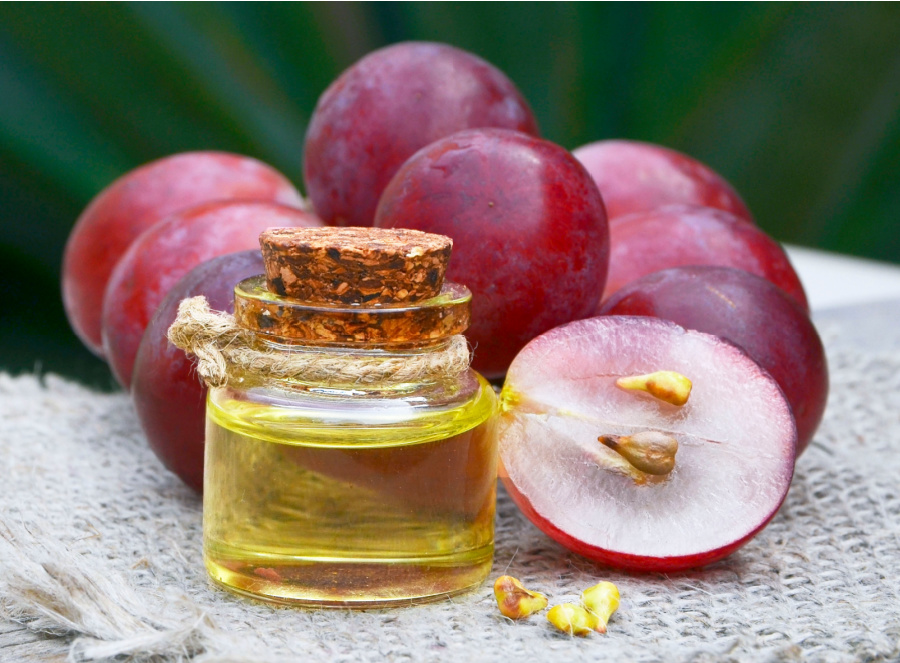
It’s an essential oil made from grape seeds, a leftover from the winemaking process and can be substituted for vegetable oil. One of the most significant advantages of grapeseed oil is its lightness. It’s even lighter than coconut and olive oils, making it excellent for all types of black hair.
Grapeseed oil is also odorless and non-greasy, and it adds just enough moisture and luster to hair.
Grapeseed oil is high in linoleic acid, which helps to prevent hair loss and baldness. If your hair is often dry and dull, even after trying different oils, grape seed oil could be the answer.

When it comes to picking the correct oil for your hair, the most important thing to remember is your hair type; what works for 4A may not work for 4C, and vice versa.
Also, even if you have the same hair type as your friend, what works for her may not work for you. Experimenting with several alternatives is the best thing to do, then incorporate what works best for you into your hair routine.

It’s critical to set a hair routine that you can stick to since consistency is vital.



